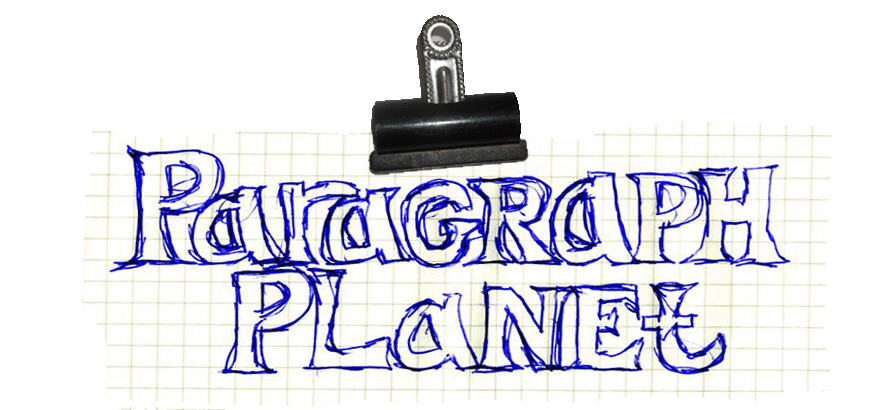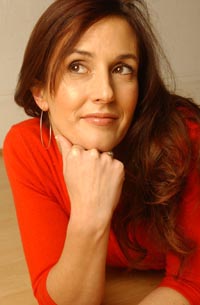









on


LAURA WILKINSON
 Primarily set in Wales in the not-too-distant future, itís about a mother, Megan, whose son is diagnosed with a terminal, hereditary condition. A condition passed down the motherís line. Buried family secrets are revealed during the search for a donor to save his life and Megan finds out that she isnít who she thought she was. The themes are: what makes a parent Ė biology or culture Ė and identity Ė who we are, where we come from, how important that is to us or not. The third, smaller, theme centres on the ethics of reproductive technology. We can do such incredible things nowadays, and I wonder where itís all going to end.
†
How do your successive drafts change?
Primarily set in Wales in the not-too-distant future, itís about a mother, Megan, whose son is diagnosed with a terminal, hereditary condition. A condition passed down the motherís line. Buried family secrets are revealed during the search for a donor to save his life and Megan finds out that she isnít who she thought she was. The themes are: what makes a parent Ė biology or culture Ė and identity Ė who we are, where we come from, how important that is to us or not. The third, smaller, theme centres on the ethics of reproductive technology. We can do such incredible things nowadays, and I wonder where itís all going to end.
†
How do your successive drafts change?
Well, Iíd like to think they change for the better. Iím whatís known as a pantser Ė I donít plan much, preferring instead to find the story and characters as I go along, so later drafts can be very different to early drafts. Usually, itís the beginning sections that alter most dramatically; I have a habit of starting a story too early, though I guess that might be me writing my way into it. Also, itís interesting how little some sections change, other than the expected editing of removing surplus words, correcting typos and tightening meaning for clarity. With the two novels Iíve written so far Iíd say that the major story and leading character arcs are roughly there in early drafts, but the devil is in the detail! I started Paragraph planet as I enjoy the final chiselling away of words to fit under the word count. What is your favourite part of the writing process?
I genuinely enjoy all the stages Ė even that final, nitty-gritty, getting rid of qualifiers, overused words, surplus adverbs and adjectives, checking-fiddly-aspects-of-grammar one. Other than the usual troughs one can expect to hit during the writing of a novel I find first drafts exhilarating and, when things are going well, fantastically exciting. First drafts are like fairground big dippers, and I love the ride. Second and third drafts are when I start digging to get to the heart of the story, and what Iím trying to say, and ensuring that the characters and narrative are truthful. Shaping it into a cohesive, hopefully engaging, read. On the tricky days I despair and feel that Iíll never write anything worthwhile, that everything is bollocks. I keep going regardless and though I might dump almost everything at a later date thereís usually something, a phrase or single word, worth salvaging. Or maybe thatís me kidding myself. † Which authors have influenced you?
†There are many authors I respect but those I always find inspiring include Margaret Atwood, Ian McEwan, Kazuo Ishiguro, Emma Donoghue and Maggie OíFarrell. Susan Fletcher is another newish, young writer who Iím full of admiration for. Many classic writers too: Jane Austen, George Eliot, Tolstoy, Dostoyevsky, the BrontŽs, Hardy. All the usuals. And the great American novelists like Melville, Steinbeck, Vonnegut, Lee and Morrison. Do you have a daily writing routine?
Alongside my fiction I work part-time in a junior school and as an editor for one of the leading literary consultancies, so there are two routines depending on the day. Iím at home for one of the five working days a week and this is the day I generally give over whole-heartedly to writing, unless there is crucial promotional work to be done. After walking my youngest to school the morning is spent thinking, dreaming and writing (not necessarily in that order). I break for lunch and go out for a while, then Iím back at the desk till home time, when I collect my boys. Once theyíre around I tend to fill in with all the other related work Ė emails, Twitter, Facebook, perhaps a bit of light editing. On the days when Iím at the school I write for a couple of hours in the evening, once the children are in bed, and the house is quiet once more. I need silence for creative work, other work I can do with a minor tornado going on around me. Just as well with boys under twelve! How important is the internet to a writer?
I think it can be a lifeline, depending on where you live. Itís a way to connect to other writers Ė writing can be such a lonely experience and most people have no understanding of the process Ė and once youíre published itís another way to connect to your readers, of course. There are some fantastic feedback and support sites out there: Writewords, ABCtales, YouWriteOn are sites I have found particularly wonderful, though Iím sure there are others. Twitter is amazing, and I have made some really good writing buddies through Twitter. And then thereís Good Reads, Love Reading, Book Bag, Book Club Forum, the list goes on. A word of warning Ė donít spend too much time on them. Otherwise youíll never write anything. Any further tips for budding writers?
Read, especially in your chosen genre, though not exclusively. Practise. Edit rigorously. Edit again, and again, and againÖ Click here for Laura's website.
